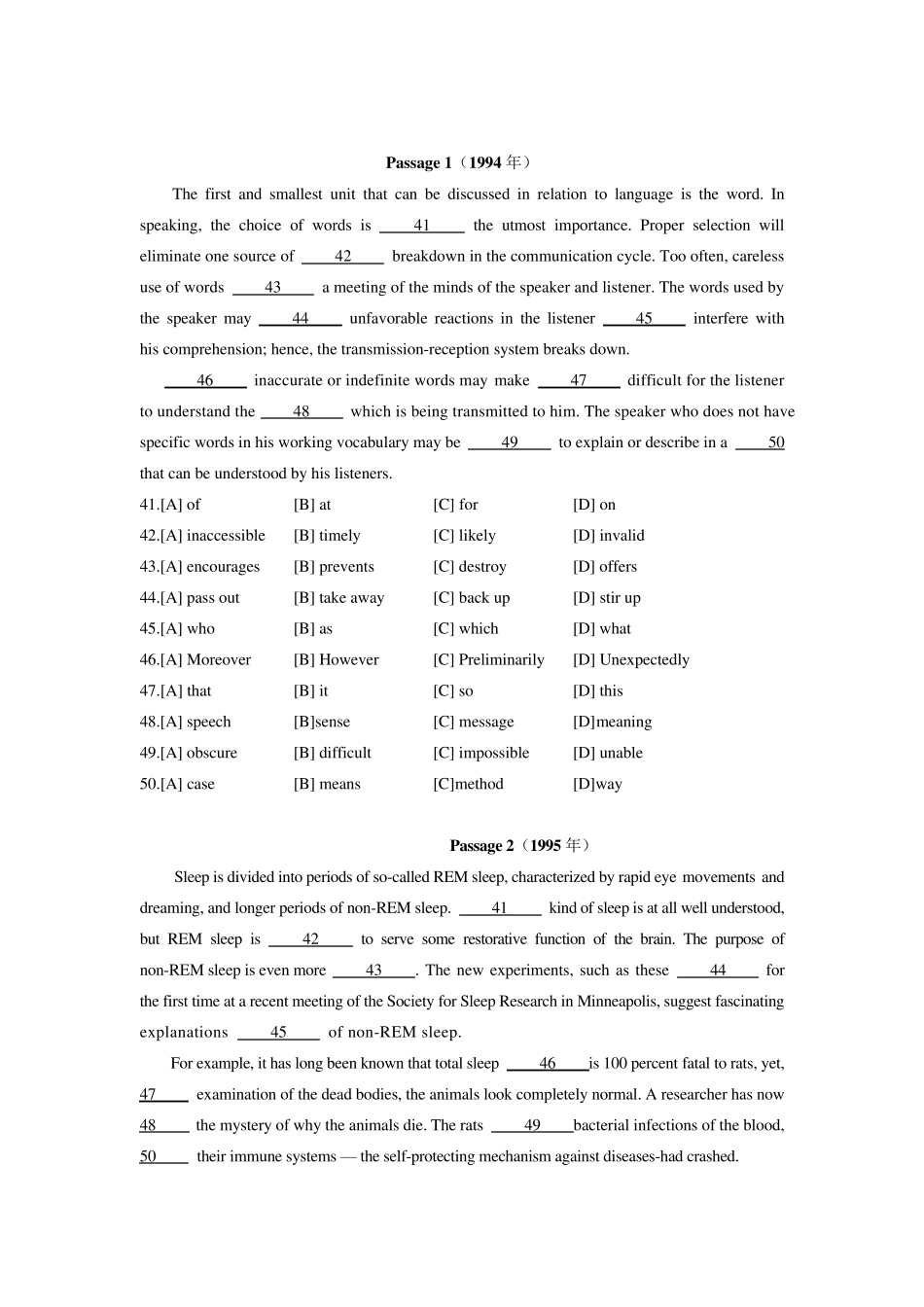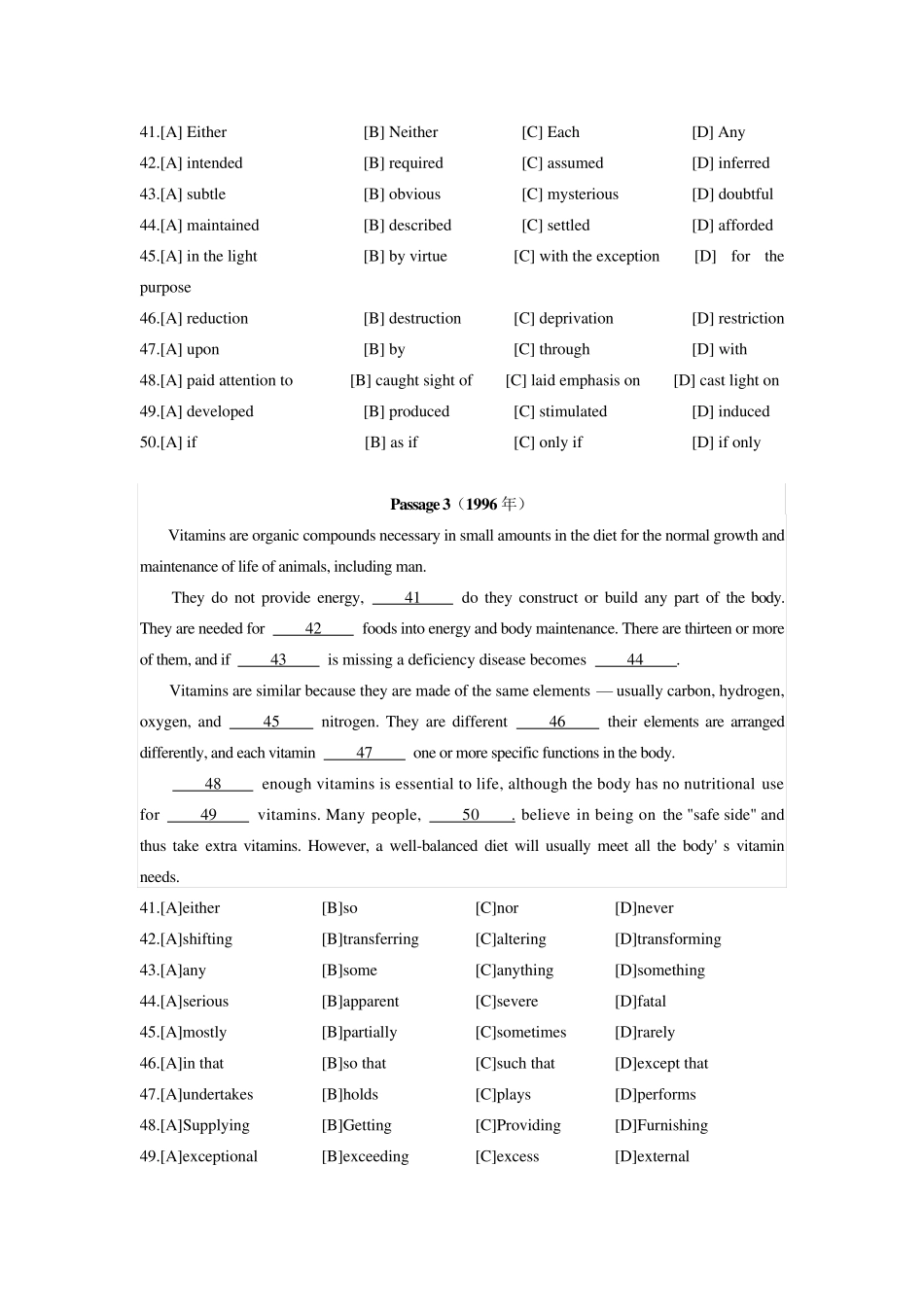Passage 1(1994 年) The first and smallest unit that can be discussed in relation to language is the word. In speaking, the choice of words is 41 the utmost importance. Proper selection will eliminate one source of 42 breakdown in the communication cycle. Too often, careless use of words 43 a meeting of the minds of the speaker and listener. The words used by the speaker may 44 unfavorable reactions in the listener 45 interfere with his comprehension; hence, the transmission-reception system breaks down. 46 inaccurate or indefinite words may make 47 difficult for the listener to understand the 48 which is being transmitted to him. The speaker who does not have specific words in his working vocabulary may be 49 to explain or describe in a 50 that can be understood by his listeners. 41.[A] of [B] at [C] for [D] on 42.[A] inaccessible [B] timely [C] likely [D] invalid 43.[A] encourages [B] prevents [C] destroy [D] offers 44.[A] pass out [B] take away [C] back up [D] stir up 45.[A] who [B] as [C] which [D] what 46.[A] Moreover [B] However [C] Preliminarily [D] Unexpectedly 47.[A] that [B] it [C] so [D] this 48.[A] speech [B]sense [C] message [D] meaning 49.[A] obscure [B] difficult [C] impossible [D] unable 50.[A] case [B] means [C]method [D]way Passage 2(1995 年) Sleep is divided into periods of so-called REM sleep, characterized by rapid eye movements and dreaming, and longer periods of non-REM sleep. 41 kind of sleep is at all well understood, but REM sleep is 42 to serve some restorative function of the brain. The purpose of non-REM sleep is even more 43 . The new experiments, such as these 44 for the first time at a recent meeting of the Society for Sleep Research in Mi...


